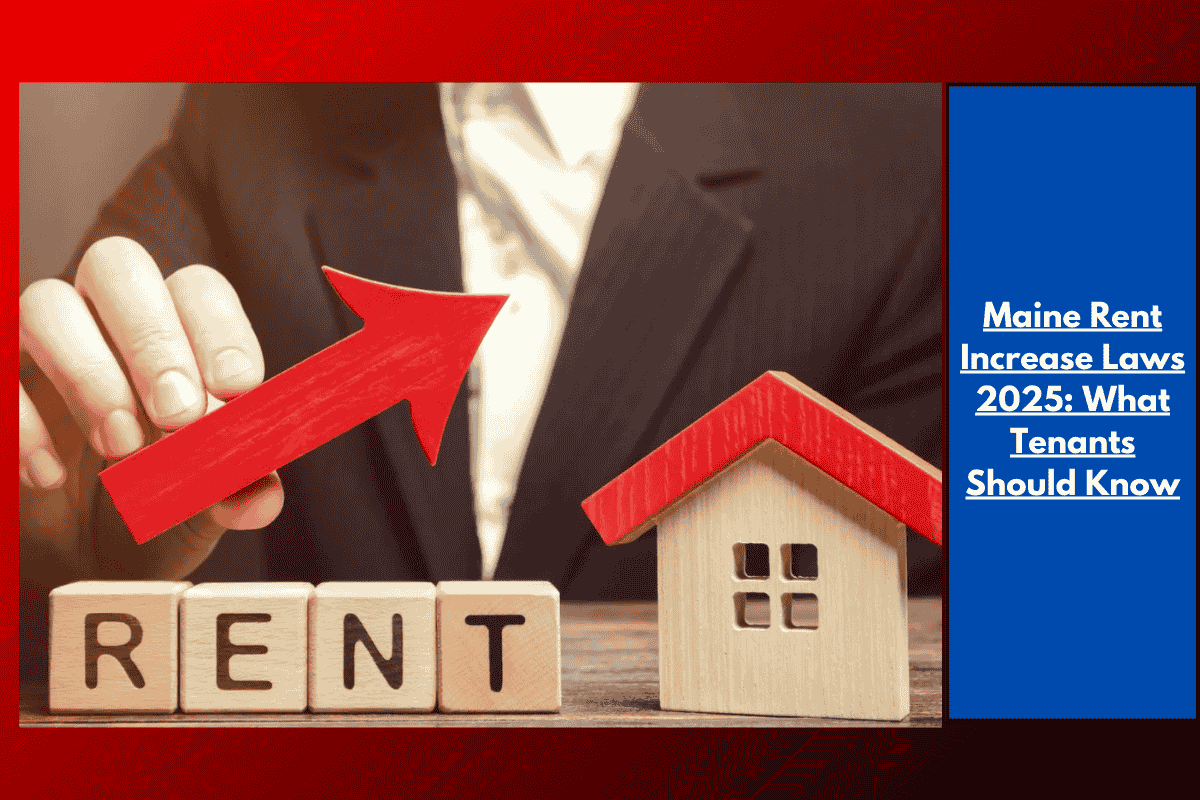Rent increases are an inevitable part of renting a home, but understanding the rules and limits surrounding them can help tenants navigate the process with confidence. In Maine, the laws regarding rent increases are designed to protect tenants while giving landlords flexibility to adjust prices in line with the market. For tenants in 2025, understanding these laws is crucial, as there are specific guidelines that govern how and when rent can be increased.
This article breaks down the key aspects of Maine’s rent increase laws and what tenants need to be aware of in 2025.
Maine’s Rent Control Laws
Maine’s rent control laws primarily focus on ensuring fairness in rental agreements, particularly in how much and how frequently rent can be raised. Maine does not have statewide rent control, but there are specific rules for cities and towns that have chosen to enact local rent control ordinances. These laws vary by location, and tenants should check with their local municipality to see if rent control applies.
While statewide rent control is not in place, there are other important guidelines in place that both tenants and landlords must follow.
How Much Can Rent Be Increased in Maine?
Maine does not have a specific statewide cap on rent increases for most residential properties. However, there are limitations for certain types of rentals, such as those with rent control ordinances in place. When there is no rent control, landlords are generally allowed to increase rent based on market conditions and other factors.
In 2025, however, landlords must provide proper notice before raising rent. The notice requirements differ based on the length of the tenancy:
For Fixed-Term Leases (One Year or Longer):
60-day notice is required for a rent increase. This means that if you are in a lease agreement that lasts for a year or more, your landlord must give you at least 60 days’ notice before any increase can take effect.
For Month-to-Month Tenancies:
30-day notice is required for a rent increase. If you are renting month-to-month, your landlord can raise the rent, but they must give you 30 days’ written notice before the increase takes effect.
When Can Rent Be Increased in Maine?
In 2025, rent increases in Maine can occur at any time during the lease period, as long as the proper notice is provided and any local rent control laws are adhered to. For tenants in fixed-term leases, the rent increase typically cannot be implemented until the lease term ends unless both parties agree to an amendment. For month-to-month tenants, the landlord has more flexibility in adjusting rent, but again, proper notice is necessary.
Importantly, landlords cannot increase rent in retaliation for a tenant exercising their legal rights, such as complaining about unsafe conditions or requesting repairs. Retaliatory rent increases are illegal, and tenants can file a complaint with the local housing authority if they believe this is happening.
Rent Control in Maine: Where Is It Applicable?
Although Maine does not have statewide rent control, certain cities and towns in Maine have their own rent control ordinances, which can limit how much and how often rent can be increased. These local ordinances typically apply to older buildings or affordable housing and may regulate the amount of rent increase within a specified period.
As of 2025, here are the general guidelines tenants should be aware of:
Local Rent Control Ordinances: Municipalities like Portland and Lewiston have implemented rent control to protect tenants from large rent hikes. Tenants in these cities should check with their local authorities or housing departments to find out the specific rules regarding rent increases in their area.
In general, if you live in a city with rent control, your landlord may only be able to raise rent by a certain percentage each year, which is usually tied to the Consumer Price Index (CPI) or a fixed dollar amount.
What Are the Legal Protections Against Excessive Rent Increases?
While Maine doesn’t have statewide rent control, tenants still have legal protections against excessive rent increases. Here are some things to keep in mind:
Notice Requirements: Landlords must give proper notice as mentioned earlier (30 or 60 days depending on the lease type).
Rent Increase Limits in Local Areas: In cities with rent control laws, there may be limits on how much rent can be increased in a given year. Tenants should check with their local government to see if rent control is in place and what the specific limits are.
Retaliation Protections: Maine law prohibits landlords from raising rent or taking other retaliatory actions against tenants for asserting their legal rights. For example, a landlord cannot raise rent as punishment for a tenant filing a complaint about unsafe living conditions.
How Can Tenants Respond to Rent Increases?
If you are a tenant facing a rent increase that seems unfair, there are several steps you can take:
Review Your Lease: If you have a fixed-term lease, carefully review the terms to see if rent increases are addressed. Often, rent cannot be raised during the lease period unless the lease allows for it or both parties agree to an amendment.
Negotiate with Your Landlord: If you find the rent increase to be excessive or unaffordable, you can try negotiating with your landlord. In some cases, landlords may be willing to offer a compromise.
Seek Legal Advice: If you feel that the rent increase violates local or state laws, or if you believe it’s retaliatory, you may want to consult with a local attorney who specializes in tenant law. Legal aid organizations can also provide free resources and advice.
For tenants in Maine in 2025, understanding the rules surrounding rent increases is essential to ensuring fair treatment. While Maine doesn’t have statewide rent control, proper notice and protections are in place to help tenants manage rent hikes. Be sure to check local ordinances, as cities like Portland and Lewiston have specific rent control laws that may limit the amount and frequency of rent increases. With the right knowledge and preparation, tenants can protect themselves and navigate any rent changes confidently.
SOURCES
[1] https://www.hemlane.com/resources/maine-rent-control-laws/
[2] https://mywaynecountynow.com/maine-rent-increase-laws-2025-what-tenants-should-know/
[3] https://www.steadily.com/blog/rent-increase-laws-regulations-maine
[4] https://www.mainelegislature.org/legis/statutes/14/title14sec6015-2.html
[5] https://www.ptla.org/rights-maine-renters-paying-rent














